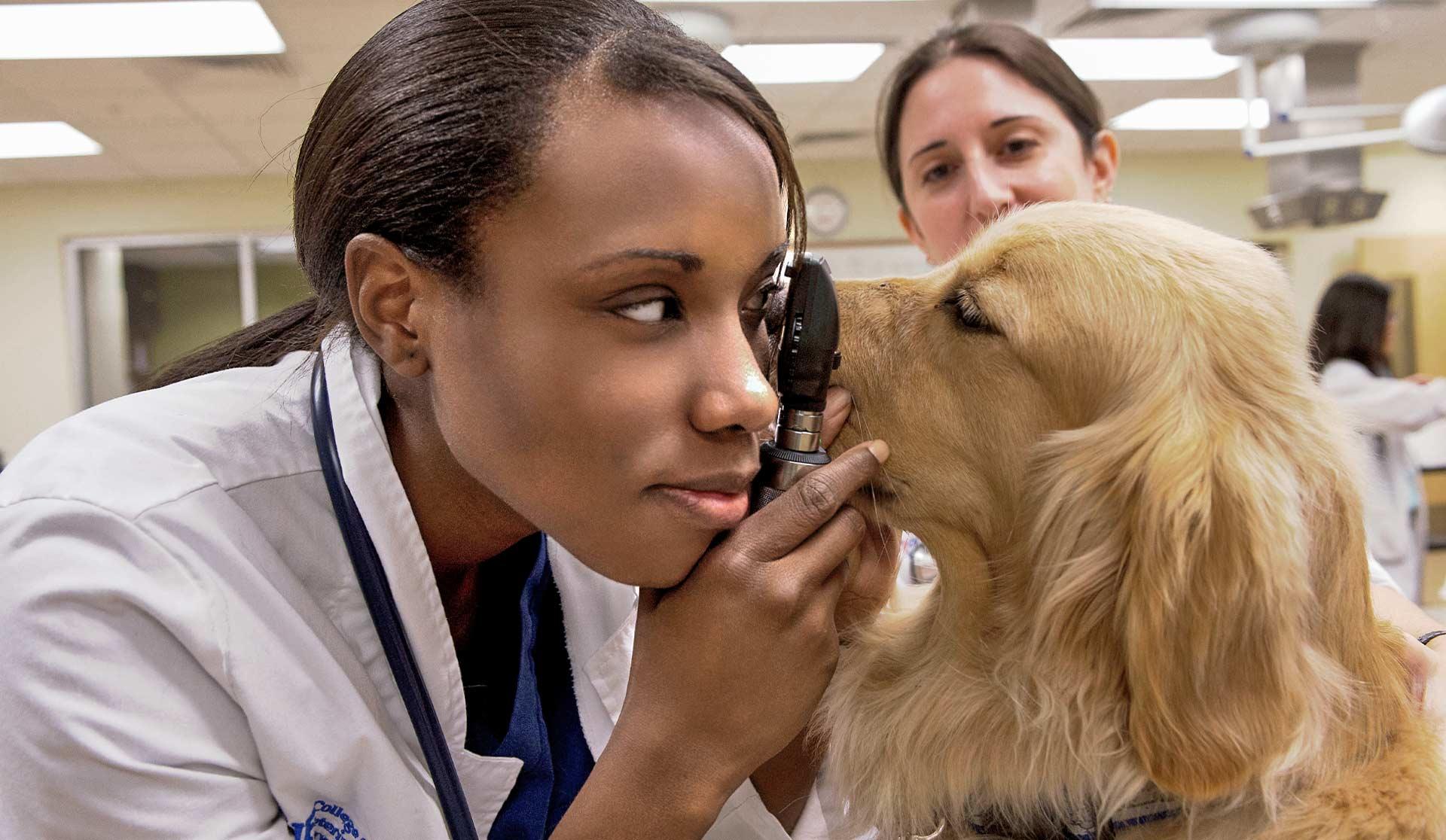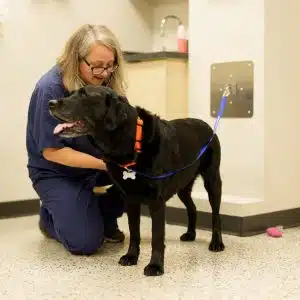Important questions your Board Certified Veterinary Oncologist at the first appointment
Wiki Article
Comprehensive Guide to the Services Used by a Veterinary Oncologist
Vet oncology encompasses a large range of solutions intended at dealing with and identifying cancer cells in animals. Board Certified Veterinary Oncologist. Oncologists use advanced analysis techniques and use numerous treatment alternatives tailored to every pet's needs. They likewise prioritize helpful treatment and offer useful sources for animal proprietors. Comprehending these solutions is important for making educated choices. What particular elements of vet oncology can notably affect an animal's treatment trip?Recognizing Veterinary Oncology
Vet oncology is a specialized field concentrated on treating and identifying cancer cells in pets. This discipline encompasses a vast array of approaches, from medical treatments such as radiation treatment and immunotherapy to medical treatments intended at getting rid of tumors. Veterinary oncologists are trained to acknowledge the special symptoms of cancer cells in numerous varieties, enabling them to customize therapy plans to private patients.Along with conventional treatments, veterinary oncology stresses encouraging care, which plays an essential role in boosting the top quality of life for damaged pets. This consists of discomfort administration, dietary support, and palliative care options. Collaboration with family pet proprietors is critical, as they are indispensable to decision-making concerning their family pets' treatment paths. As research developments, veterinary oncology remains to evolve, offering brand-new hope and improved outcomes for pets detected with cancer cells. Generally, this field is fundamental for addressing the complexities of cancer cells in buddy animals.
Advanced Diagnostic Techniques
Advanced analysis methods play a vital function in veterinary oncology, providing critical understandings into the presence and level of cancer cells in animals. Imaging modalities such as ultrasound, CT scans, and MRI are frequently utilized to visualize growths and evaluate their attributes. Additionally, biopsy treatments are crucial for obtaining cells samples, enabling definitive diagnosis and customized treatment strategies.Imaging Modalities Utilized
Imaging modalities play a crucial duty in the medical diagnosis and administration of cancer cells in animals. Vet oncologists utilize numerous sophisticated imaging techniques to examine tumor transition, presence, and size. Radiography, or X-rays, supplies an initial view of bone and chest conditions, while ultrasound offers real-time imaging of soft tissues, allowing for thorough evaluation of interior organs. Calculated tomography (CT) improves visualization of complex physiological frameworks and enables 3D restorations, assisting in accurate lump localization. Magnetic resonance imaging (MRI) is very useful for soft tissue differentiation, especially in mind lumps. Additionally, nuclear medicine methods such as positron discharge tomography (PET DOG) aid identify metabolic task within lumps. Jointly, these modalities enhance diagnostic accuracy, directing reliable treatment techniques for oncological clients.Biopsy Treatments Described
Adhering to the first assessment through imaging techniques, acquiring a conclusive diagnosis commonly calls for cells sampling with biopsy procedures. Veterinary oncologists utilize various biopsy strategies based on the tumor's area and characteristics. Great needle aspiration (FNA) is a minimally intrusive method that extracts cells for cytological evaluation, ideal for superficial masses. Core needle biopsies give bigger cells examples and work for much deeper growths, enabling histopathological analysis. Surgical biopsies entail excising a section or the whole lump, facilitating comprehensive evaluation. These treatments not just verify the existence of cancer but additionally aid identify its type and quality, guiding treatment decisions. Each biopsy approach is picked very carefully to balance analysis precision with client security and comfort.Treatment Alternatives for Cancer in Pet dogs
When an animal is detected with cancer, a selection of treatment choices appear to help boost and handle the condition high quality of life. Veterinary oncologists commonly suggest a multidisciplinary approach tailored to the specific pet's requirements, which might consist of surgery, radiation treatment, immunotherapy, or different therapies.Surgical procedure is often utilized to remove tumors and afflicted tissues, potentially causing total remission sometimes. Radiation therapy aims to destroy and target cancer cells, decreasing lump dimension and alleviating symptoms - Board Certified Veterinary Oncologist. Immunotherapy harnesses the pet's body immune system to eliminate cancer better, while alternate treatments may include acupuncture or organic supplements to sustain general wellness
Each therapy alternative lugs its very own benefits and dangers, and veterinary oncologists function carefully with animal owners to create a complete plan that straightens with the animal's certain medical diagnosis and the proprietor's dreams. The ultimate objective is to enhance the family pet's comfort and quality of life throughout their cancer trip.
Chemotherapy for Pets
Radiation treatment is a common treatment choice for pets diagnosed with cancer cells and is usually made use of along with other therapies described by vet oncologists. This treatment includes the management of details drugs developed to target and destroy cancer cells, consequently reducing lump dimension and protecting against the spread of the condition. Veterinary oncologists tailor radiation treatment protocols based on the kind of cancer cells, the family pet's general wellness, and the wanted treatment end result.Adverse effects can occur, as these medicines might also influence healthy cells. Common responses consist of nausea or vomiting, vomiting, and momentary modifications in cravings - Pet Cancer Surgery. Vet oncologists are geared up to manage these adverse effects effectively, making certain the family pet's convenience throughout the treatment procedure. Normal monitoring via blood examinations and follow-up appointments is important to examine the pet dog's feedback to radiation treatment and make needed changes. Eventually, radiation treatment can provide significant advantages, boosting the lifestyle for pets encountering cancer diagnoses

Radiation Treatment in Veterinary Medication
Radiation therapy works as a reliable treatment choice for family pets diagnosed with localized lumps, supplying a targeted technique to cancer cells administration. This method utilizes high-energy radiation to damage the DNA of cancer cells, preventing their capacity to multiply. It is specifically helpful for tumors that are not open to surgical elimination or for situations where surgical treatment might not be viable because of the tumor's area.Veterinary oncologists tailor radiation protocols based on tumor dimension, kind, and area, as well as the pet dog's total wellness. Therapy can be delivered by means of external light beam radiation or brachytherapy, each with distinct benefits. Normally, several sessions are called for to optimize performance while minimizing side impacts.
Although pets might experience momentary responses such as skin irritation, the general objective is to shrink tumors and alleviate signs and symptoms, eventually improving the animal's diagnosis and lifestyle. Appropriately, radiation treatment plays a necessary duty in extensive cancer treatment.
Palliative Care and Lifestyle
Palliative care in veterinary oncology focuses on improving the lifestyle for pet dogs encountering terminal health problems, ensuring convenience and dignity in their final days. This specialized strategy focuses on pain management, symptom control, and psychological support. Vet oncologists assess each pet's private needs, tailoring interventions to reduce pain and boost total well-being.Strategies may include administering medications for pain alleviation, managing nausea, and addressing various other distressing signs. Additionally, dietary assistance is typically provided to preserve toughness and enhance hunger. The psychological element of palliative treatment is similarly vital; producing a tranquil environment helps in reducing stress and anxiety for both family pet and owner.
Inevitably, the objective of palliative care is to permit family pets to enjoy their continuing to be time with as much pleasure useful link and self-respect as possible. By concentrating on convenience and top quality of life, veterinary oncologists play a necessary role in ensuring that family pets and their families browse this challenging trip with compassion and understanding.
Support for Pet Dog Owners Throughout Therapy

Emotional Support for Proprietors
Charting the psychological landscape throughout a family pet's cancer therapy can be a frustrating experience for owners. The unpredictability bordering medical diagnosis and prognosis can result in sensations of despair, vulnerability, and anxiety. Vet oncologists acknowledge the value of emotional support and commonly give advice to assist proprietors browse this difficult trip. Communication is crucial; going over therapy alternatives and potential results can relieve some fears. Furthermore, offering confidence that emotional actions are legitimate fosters a helpful environment. Numerous oncology centers may also suggest support system or therapy solutions customized for pet owners, promoting shared experiences. Urging owners to prioritize self-care during this time around is essential, as their psychological health straight affects their family pet's convenience and general therapy experience.
Resources and Educational Products
Guiding with the complexities of a pet dog's cancer cells treatment can be intimidating for owners, making accessibility to trusted resources and educational products crucial. Veterinary oncologists frequently give an array of handouts, brochures, and online products that explain therapy options, possible negative effects, and care methods. These resources aid debunk the process and equip pet dog owners to make enlightened decisions. In addition, many oncology facilities offer accessibility to support online forums and groups where proprietors can connect with others encountering similar difficulties, cultivating a sense of neighborhood. Educational seminars and webinars performed by veterinary experts further improve understanding, ensuring that proprietors are fully equipped to navigate their family pet's trip with cancer cells therapy with self-confidence and understanding.Regularly Asked Inquiries
How Can I Prepare My Animal for a Veterinary Oncology Browse Through?
Preparing a pet for a veterinary oncology check out entails celebration medical records, keeping in mind signs and symptoms, and ensuring the animal is comfy. A tranquil disposition and familiar products can help ease anxiousness throughout the consultation.What Are the Signs My Pet Dog May Have Cancer Cells?
Indications that a pet dog might have cancer consist of unusual fat burning, relentless vomiting or looseness of the bowels, unusual lumps or swellings, lethargy, adjustments in hunger, difficulty breathing, and modifications in behavior. Trigger veterinary interest is vital.Just How Can I Assistance My Animal Emotionally During Therapy?
Supporting a pet dog emotionally during therapy involves giving comfort, preserving regimens, supplying gentle love, and guaranteeing a tranquil setting. Participating in peaceful play recommended you read and routine companionship assists alleviate anxiety and cultivates a complacency.Are There Alternative Treatments for Animals With Cancer?
Alternative therapies for family pets with cancer include acupuncture, herbal therapies, and nutritional assistance. These approaches may match conventional treatments, advertising general well-being. Consulting with a veterinarian is essential for efficient and safe combination of alternative treatments.What Costs Should I Expect for Vet Oncology Services?
The anticipated expenses for veterinary oncology services can vary significantly, commonly influenced by diagnostics, treatments, and ongoing treatment. Pet dog proprietors must plan for costs ranging from assessments to specialized therapies, mirroring the intricacy of cancer monitoring.Cooperation with family pet owners is important, as they are essential to decision-making concerning their animals' treatment paths. Each therapy choice carries its very own advantages and dangers, and veterinary oncologists function closely with pet proprietors to design a complete plan that straightens with the animal's specific medical diagnosis and the owner's dreams. Family pets may experience momentary reactions such as skin irritability, the overall goal is to shrink lumps and minimize symptoms, eventually boosting the pet's prognosis and high quality of life. Assistance for animal owners during treatment is important in guiding through the emotional challenges linked with an animal's cancer cells medical diagnosis. Preparing an animal for a vet oncology see involves event clinical documents, noting signs and symptoms, and making sure the pet dog is comfortable.
Report this wiki page